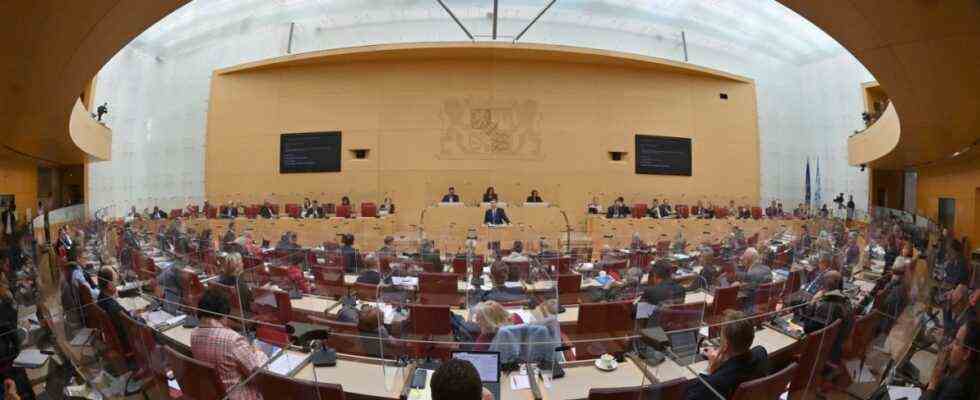The Bavarian constitution is very clear: “The state parliament consists of 180 members of the Bavarian people”, it says in Article 13, Paragraph 1. Only Article 13 is followed by Article 14, and that’s where the matter in Paragraph 1, Clause 6, is again complicated: “By overhanging and compensatory mandates, which are allocated in application of these principles, the number of MPs according to Art. 13 Para. 1 can be exceeded.” For this reason, the state parliament currently has 205 members, not 180. There are too many for the FDP. With eleven members, it is by far the smallest parliamentary group and accordingly would have fewer posts to lose if the state parliament were to become smaller again. And she is now calling for an electoral reform during this legislative period.
The trend is that the state parliament is getting bigger, more and more expensive and “maybe more and more cumbersome”, says the deputy FDP parliamentary group leader Alexander Muthmann. This is mainly due to the CSU, which can no longer count on absolute majorities, but has recently won almost all direct mandates. Currently, the Christian Socials represent 85 of 91 directly elected members, which is almost half of the constitutional ideal size of the state parliament. With the second votes for the lists, the CSU only got 37.2 percent of the total votes. In order to re-establish the right relationship between the parties, the other parties receive compensation mandates, and the state parliament becomes larger.
Such an electoral system opens up a wide range of calculations for the Augsburg mathematics professor and election expert Friedrich Pukelsheim. On behalf of the FDP, Pukelsheim calculated the expected size of the state parliament if the CSU were to do the same in the state elections in 2023 with 31.8 percent as in the most recent federal election and at the same time win 85 of 91 electoral districts again. All of this is expressly not an election forecast, emphasizes Pukelsheim, but only an example calculation. But that results in a state parliament with 236 members – and the worse the CSU does overall, the bigger the parliament would be, as long as the direct candidates of the Christian Socials, who are largely unchallenged, continue to win their constituencies.
FDP calls for “comprehensive electoral reform”
The target mark from the constitution has to be taken “very seriously,” says Muthmann. Muthmann and Pukelsheim believe that the “improved proportional representation system”, which is also laid down there, could best be further improved by reducing the number of electoral constituencies. If there were only 80 instead of 91 in the future, Pukelsheim’s bill would result in a state parliament with 209 seats. To get to 180 MPs, there should only be 68 electoral districts. That would greatly increase the area and the number of residents that each constituency representative should represent – and it would be difficult to convey it to the CSU in particular, which would then have far fewer posts to distribute.
The ratio of the total votes could also be maintained, for example by not allowing the directly elected candidates with the worst results to move into the state parliament. Such a regulation was made in 1954 by two Lower Bavarian CSU candidates, whereupon the electoral law was quickly changed again. Muthmann rejected this idea anyway because parts of the country would then remain without MPs. Rather, he calls for a “comprehensive electoral district reform”, which must also adjust the size of the electoral districts more effectively than before in order to correct regional inequalities in the weight of each voter vote and in the chances of the list candidates. The state government is “unfortunately only doing what is absolutely necessary”. The CSU would prefer to solve the problem through better election results. In view of the solid majorities, the question of overhang mandates had not even arisen for decades until 2008.

